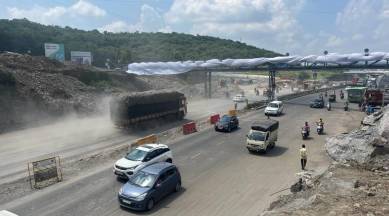Click here to join Express Pune WhatsApp channel and get a curated list of our stories
‘With help of residents, Indore’s clean sweep in survey can be a replicable model for Pune too’
An efficient policy, strengthening in-house sanitation infrastructure, insistence on waste segregation, door-to-door collection, and a change in mindset have all pushed Indore to achieve what seemed impossible.

Written by Dr Sudhir Mehta
Indore, Madhya Pradesh’s largest and most populated city, which is also a commercial and industrial hub, has retained the ‘cleanest city’ tag in India for the sixth time in a row. But this wasn’t always the case. Flashback to 2014, when Indore painted a dismal picture in terms of cleanliness and sanitation, earning itself the 149th spot in Swachhta survey.
monthly limit of free stories.
with an Express account.
Having once been a citizen of Indore, if somebody had told me back then that one day the city will look the way it does now, I wouldn’t have believed them. Public and political will, and a well thought-out plan, are at the heart of the city’s ‘clean sweep’, as it has been ranked the cleanest city in the country for six consecutive years.
An efficient policy, strengthening in-house sanitation infrastructure, insistence on waste segregation, door-to-door collection, and a change in mindset have all pushed Indore to achieve what seemed impossible.
Pune and Indore have many things in common. Both cities are commercial, industrial, automotive, and education hubs. However, they are like chalk and cheese when it comes to cleanliness and civic infrastructure. This year, Pune’s ranking has dropped to ninth from last year’s fifth in the annual Swachh Survekshan 2022. Indore has championed the art of social engineering and behaviour change by leveraging technological advancements, and involving NGOs and the private sector diligently. The Indore model is an exemplary framework to replicate in Pune that can help us become a sustainable economic powerhouse and fastest-growing region.
Door-to-door waste collection and segregation at source: Waste segregation at the source is the most crucial link in the entire chain of waste management. Indore started with two types of segregation, which today has increased to six. To encourage Pune residents to comply with the civic body’s efforts, we should focus on one goal at a time.
A separate mechanism of collection of waste from commercial bulk waste generators, commercial buildings, hotels, vegetable markets, and electronic waste handlers, needs to be incorporated simultaneously.
Once 100 per cent door-to-door collection is achieved, it is easier to convince citizens to take the next step — segregating dry and wet waste.
After achieving the optimum level of service delivery, spot fines and penalties for indiscriminate dumping of waste can be implemented strictly.
Capacity building: We need to build a fleet of door-to-door garbage collection vehicles, strengthen and improve the older resources, and strengthen the team of safai karamcharis to build capacity.
Mobilising NGOs: NGOs have played a key role in setting up a waste management system and creating large-scale awareness in Indore. It is important to mobilise NGOs and volunteers, and to motivate each citizen and household on waste segregation, and inform them about keeping separate bins for dry, wet, and hazardous waste.
Community participation & civic movement: People’s voluntary participation was the key to the achievement of Indore. Any sustainable transformational change needs proactive support and participation from all stakeholders, and in this case, citizens. We need to connect and engage with the citizens to turn this into a movement. NGOs and civil society organisations can be roped in for the task. Personnel from these organisations should be involved in guiding households about segregating waste on the spot and sensitising them about the benefits.
What Pune needs is a proactive, collaborative, and efficient team of like-minded, growth-oriented people, fuelled by passion, strategic planning, and determinations. With continued focus on making our city clean, we can tread the path Indore has paved.
Dr Sudhir Mehta is the founder & chairman, Pinnacle Industries & EKA Mobility
Click here to join Express Pune WhatsApp channel and get a curated list of our stories